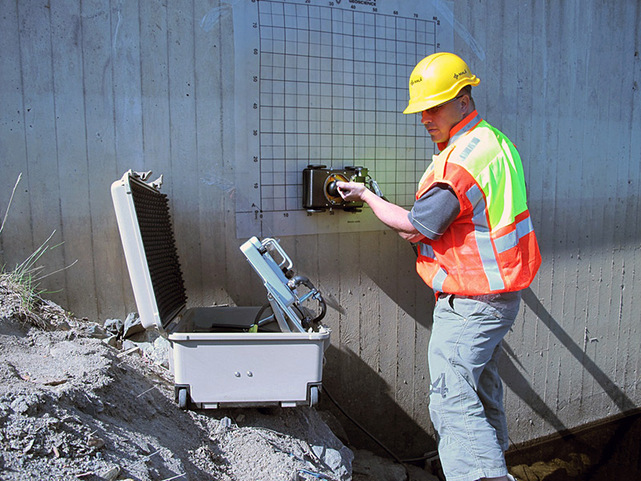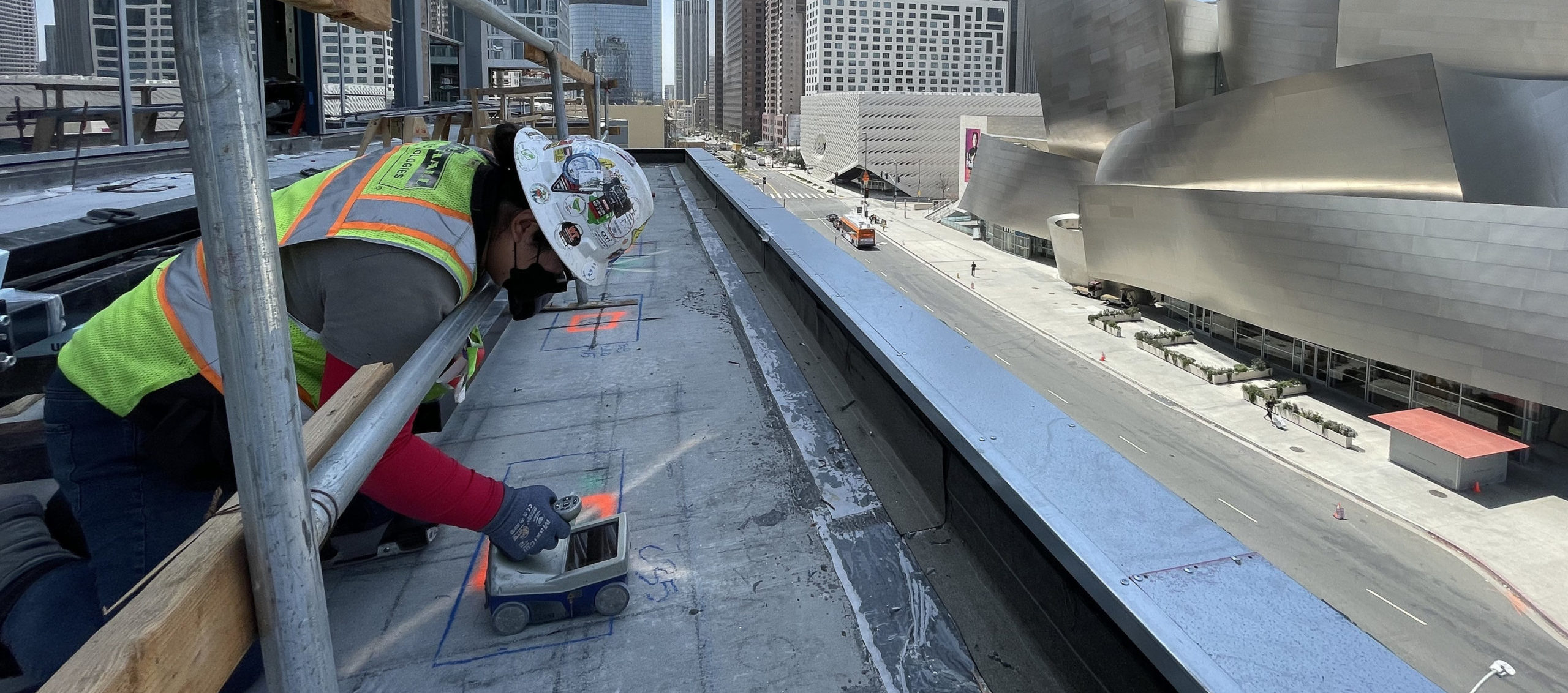Harness the Strategic Edge of Concrete Scanning for Unparalleled Project Success and Quality Guarantee
In the world of modern-day building and construction and facilities advancement, the usage of concrete scanning technology has actually become a critical tool for ensuring task success and keeping top quality requirements. This innovative approach offers a strategic edge by providing vital insights right into the structural integrity of concrete components, therefore making it possible for educated decision-making throughout the task lifecycle. By delving into the midsts of concrete structures and discovering hidden anomalies, stakeholders can proactively address possible dangers, improve operations, and maximize source appropriation. Nonetheless, truth power of concrete scanning lies not only in its capability to enhance job results however additionally in its ability to revolutionize traditional techniques, establishing a new benchmark for accuracy and effectiveness in the building sector.
The Value of Concrete Scanning
Concrete scanning is an essential action in building and construction jobs to ensure the safety and security and integrity of frameworks. By utilizing various scanning modern technologies such as Ground Permeating Radar (GPR) and electro-magnetic induction, construction teams can non-destructively examine the subsurface of concrete frameworks to determine possible hazards like rebar, channels, or post-tension cables. This information is critical for job managers, engineers, and professionals to make enlightened choices and prevent costly mistakes throughout the building and construction procedure.
One of the key factors why concrete scanning is so important is its capacity to avoid crashes and injuries on the building site. Accidentally reducing with a live electric conduit or destructive post-tension cable televisions can have devastating effects, not just in terms of security but likewise in regards to job hold-ups and financial effects. By conducting thorough concrete scanning before any kind of boring, reducing, or coring activities, building groups can reduce threats and produce a more secure working environment for every person involved.
Along with safety considerations, concrete scanning additionally plays an essential duty in guaranteeing the lasting sturdiness and top quality of the structure. By finding any anomalies or flaws hidden under the surface area, such as voids or delamination, early treatment can be applied to address these problems prior to they rise into more substantial problems. Eventually, purchasing concrete scanning is a positive action that can save time, money, and sources in the long run, while also promoting the greatest criteria of building excellence.
Advanced Modern Technology for Accurate Outcomes

By incorporating these sophisticated innovations into concrete scanning methods, building teams can streamline workflows, reduce task hold-ups, and make sure the general quality and success of the project. The accuracy and effectiveness provided by these tools contribute significantly to the task's success by promoting educated he said improving and decision-making quality guarantee procedures.
Enhancing Job Efficiency and Timelines

Furthermore, concrete scanning enables teams to identify prospective risks and structural weaknesses at an early stage, enabling for timely remediation and avoiding mishaps that might derail project timelines. The real-time data offered by scanning tools helps with informed decision-making, resulting in smoother coordination among different professions and stakeholders. This enhanced cooperation decreases problems, boosts efficiency, and eventually accelerates project delivery.
In addition, by proactively resolving concerns with concrete scanning, building teams can abide by other schedules better, reduce downtime, and optimize resource allocation. The capacity to detect covert obstacles and verify architectural honesty successfully adds to general job effectiveness and timelines, ensuring effective end results and client fulfillment.
Ensuring Security and Risk Reduction

Risk reduction techniques can be boosted with the detailed info provided by concrete scanning, making it possible for project groups to make informed choices that decrease the chance of unforeseen cases. Furthermore, by properly mapping out subsurface problems, specialists can prevent pricey rework, delays, and damages to existing frameworks, even more adding to total project safety and security and success. Executing concrete scanning as a routine method not just makes sure a safer workplace yet also imparts self-confidence in stakeholders relating to the task's commitment to top quality and risk administration.
Quality Control Via Concrete Scanning
Concrete scanning plays an essential duty in supporting quality control criteria within construction projects. By using sophisticated scanning modern technologies such as Ground Penetrating Radar (GPR) and Concrete X-ray, project managers and engineers can make sure the honesty and quality of concrete structures. With concrete scanning, prospective flaws, such as gaps, splits, page or reinforcing bar congestion, can be discovered non-destructively, enabling prompt treatments to keep the structural integrity of the project.
Quality control with concrete scanning not only helps in identifying existing issues but also allows positive procedures to avoid future troubles that can endanger the safety and security and long life of the framework. By performing detailed scans at key phases of building and construction, groups can confirm the accuracy of structural plans, verify the positioning of important components, and resolve any deviations promptly. This aggressive approach decreases rework, lowers costly delays, and ultimately causes the distribution of high-quality, durable frameworks that go beyond or meet industry standards.
Verdict
To conclude, concrete scanning plays an essential role in ensuring project success, quality, safety and security, and efficiency guarantee. By utilizing sophisticated technology for exact outcomes, building tasks can be completed with higher precision and within timelines. The strategic edge given by concrete scanning permits aggressive risk mitigation and boosts overall job monitoring. Incorporating concrete scanning into building and construction processes is necessary for achieving unmatched success and ensuring high quality end results - RainierGPR Concrete Scanning.
In the realm of contemporary building and construction and framework development, the usage of concrete scanning innovation has actually arised as a pivotal tool for guaranteeing job success and preserving top quality standards. By incorporating these advanced innovations right into concrete scanning practices, construction groups can simplify operations, lower task hold-ups, and make certain the overall quality and success of the job.Provided the important nature of job effectiveness and timelines in building administration, the focus currently changes in the direction of making sure security and mitigating risks within the task environment.Concrete scanning plays a pivotal duty in promoting high quality assurance standards within building and construction jobs. By utilizing innovative scanning modern technologies such as Ground Permeating Radar (GPR) and Concrete X-ray, project supervisors and engineers can make certain the honesty and high quality of concrete structures.
Comments on “Detailed Overview to RainierGPR Concrete Scanning Techniques”